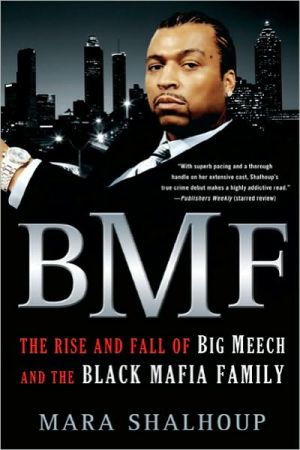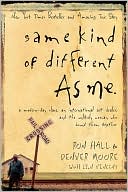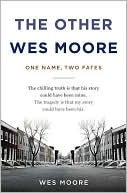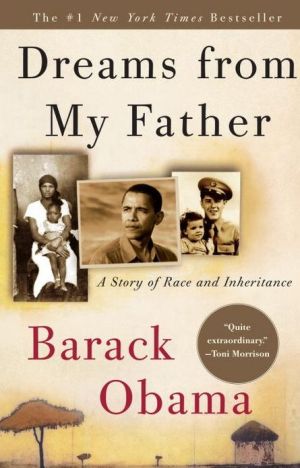BMF: The Rise and Fall of Big Meech and the Black Mafia Family
In the early 1990s, Demetrius “Big Meech” Flenory and his brother, Terry “Southwest T,” rose up from the slums of Detroit to build one of the largest cocaine empires in American history: the Black Mafia Family. They socialized with music mogul Sean "Diddy" Combs, did business with New York's king of bling Jacob "The Jeweler" Arabo, and built allegiances with rap superstars Young Jeezy and Fabolous. Yet even as BMF was attracting celebrity attention, its crew members struck fear in...
Search in google:
Two weeks after state and federal agents descended on the White House and a month after a high-profile club shooting left Sean "P. Diddy" Combs's former bodyguard dead, Demetrius "Big Meech" Flenory was granted bond. It was an unusual move in a double homicide, especially one that had grown so sensational. In the wake of the shootings, well-heeled and well-organized residents of Atlanta's upscale Buckhead neighborhood were angrily calling for a crackdown on the violence in their neighborhood.Basically, the Chaos gun battle wasn't the type of crime the Fulton County D.A.'s office liked to leave unresolved. But prosecutors were left with little choice. Their investigation into Meech was simply too thin. No grand jury would indict a case without a murder weapon, a witness, or a confession. Indeed, the case never made it to the grand jury. The most that could be concluded was that Meech acted in self-defense, if he acted at all.To Big Meech and his crew, to residents of Buckhead, and to other concerned Atlantans, the Chaos investigation appeared to be a battle the authorities had lost. But while the murder case against Meech had fallen apart, the Atlanta Police Department and U.S. Drug Enforcement Administration were able to take what they learned from the White House search and combine it with other information they'd already unearthed. Judging from the breadth of the evidence, investigators were able to see that they were on to something. It was something big. It was something organized. It was something called, formidably enough, the Black Mafia Family.Publishers WeeklyStarred Review. Formed in mid-1990s Atlanta by ambitious, Detroit-born hustler Demetrius "Big Meech" Flenory, the Black Mafia Family controlled most of the American cocaine trade for the better part of a decade. Interviewing members from all levels of the national organization, including now-imprisoned Big Meech, Atlanta-based journalist Shalhoup delivers a stunning exposé of a crime empire that collapsed under the weight of its own success, rising and falling on its charismatic founder's desperate desire for success, popularity, and, ultimately, music-business legitimacy. Shalhoup examines each character in the federal prosecution's comprehensive case, tracing their activities over many years, revealing a lifestyle of over-the-top glamour punctuated by random, brutal violence. Shalhoup quickly, and graphically, dispels the air of hip-hop romance that Big Meech cultivated first through crime and, later, by playing a supporting role in the careers of up-and-coming rappers like T.I. and Jeezy. With superb pacing and a thorough handle on her extensive cast, Shalhoup's true crime debut makes a highly addictive read. Color photos. Copyright © Reed Business Information, a division of Reed Elsevier Inc. All rights reserved.
PROLOGUE: MARCH 2008\ As bad as they wanted me, there was no winning.\ —DEMETRIUS “BIG MEECH” FLENORY The most notorious inmate ever to set foot in the St. Clair County, Michigan, jail is reclined on a ledge just off the hallway that leads to his cell. His hair, unwound hours earlier from the braids he usually wears, is pushed back from his face, falling to his shoulders in kinky waves. He’s saddled with a few extra pounds, but that’s to be expected. He’s been locked up in this suburban facility, an hour north of Detroit and just across the water from Ontario, for three Michigan winters. That’s countless days stuck in a coop where you can’t be let outside, not even to exercise, not even for an hour, unless the thermostat creeps above 40 degrees. Fat chance of breaking 40 in February, or even in March. He’s actually looking forward to prison, hopefully somewhere down South where it’s warm.\ Still, he’s not complaining. They’ve been good to him here. He’s polite and well mannered, and that’s earned him certain privileges. When visitors come in from out of town—a guest list that he claims has included rap superstars Akon and Young Jeezy (Snoop Dogg tried to come, but got snowed out)—the deputies go out of their way to accommodate them. To the inmate, preferential treatment is nothing new. On the outside, he was used to getting what he wanted. Jail is no diff erent.\ Knee propped up, back pressed against the cement wall, he leans into the glass partition. There’s no chair on his side, and though a guard just announced over the loudspeaker to please refrain from sitting on the ledge, he’s sitting on it anyway. So he has no choice but to look down at me. It’s not a patronizing gesture, but one that brings to mind his unshakable pride, his famed largesse, his ability, even now, to salvage some of the grandeur to which he’d grown accustomed.\ I ask about one of his other reputed traits, one that paints him in a less generous light—or, as a federal informant once put it, his street rep as “a vengeful killer who threatens people.” He kind of chuckles and takes pause, as if bemused by the question. “I’ll put it to you like this,” he says, leaning in closer, casual and friendly. “If trouble comes to me, then I’m going to deal with it.”\ That kind of stuff — petty stuff , stuff that got blown out of proportion—used to happen all the time, he says. There’d be jealousy over girls, or people thinking their crew is better than his crew, and so forth. “Some guys make a fool of themselves,” he continues. “Then, before they know it, they look up and there’s a bunch of us. We just handle the problem the best way we know how.” Again, he claims, that’s only when people come asking for it. He’d prefer to keep things civil. “I’m more old-school, more family oriented,” he says. “I don’t believe in airing diff erences in public places.”\ It’s a reasonable explanation, from a seemingly reasonable man. But it’s not hard to glimpse the darkness behind the facade. He off ers it up every now and then. It slips from behind that transformative smile, peeks around a pair of otherwise warm and engaging eyes. Those eyes narrow when I bring up a murder charge filed against one of his closest crew members. It’s the only violent allegation to hit his inner circle that ever made it to the trial calendar. “That’s ridiculous,” he says, though witnesses say otherwise. “I can’t see him doing something to somebody like that.” He blames the murder rap on an overzealous snitch—one who came forward only after he himself was in trouble, and who claimed to have witnessed the killing but did nothing to stop it. “What was he doing? Sitting there watching? It doesn’t add up.”\ As for everything else—the two decades in the game, the fast cars and grinding music, the showering cash and fawning respect, the partying that would make Tony Montana blush—well, that made his current situation worth it. The bummer is that he was good at what he did—too good, he thinks, for things to have gone the way they went. It just didn’t seem like his time. If he’d been busted with a hundred keys or had sold to the DEA, that’d be one thing. That would somehow be more understandable. But that’s not what happened. What happened, he believes, was that he became far too fascinating to those who wanted to see him fail.\ By the time the Bentleys were rolled out and the billboards went up and the rappers were invoking his name in top-ten hits, he was past the point of return. His only option was to do it big. And if doing it big meant putting on even more of a show for the feds, so be it. It was a matter of necessity. But what about before? Why go down that path in the first place? Why blow it up the way he did, when blowing it up meant blowing it all away? “If I was going to stick with the illegal stuff, I would have sat in and stayed out of sight,” he says. “But what can you do when you’re expected to go out, when everybody wants to see you?”\ In any case, he didn’t really think he’d get caught. He didn’t think there was anything he could get caught for. Now he knows diff erent. Now he knows that no matter how careful he might have been, he overlooked one obvious fact: The very combination that fi rst made him a success—his ability to attract attention and his unwillingness to slow down— was destined to make him a failure. On both sides of the law, he became all but impossible to resist. People wanted to see him, and the government wanted to see him go down. “As bad as they wanted me,” he says, “there was no winning.”\ So, in the end, he’s glad he did it the way he did, because at least he had some fun. At least he flexed a little muscle, bore a little infl uence. He claims to have boosted the careers of T.I. and Jeezy in Atlanta and Fabolous in New York, which means they all have him to thank. Not that he’s looking for validation, exactly. Just the recognition that back in the beginning, when no one else was paying much attention, he was the one who helped float them. He was the one who helped elevate some of the biggest names in hip-hop (which, at the time, meant some of the biggest names in music, period). He was the one who helped create the fantasy that they’re still living.\ Viewed from his exile on the second floor of the St. Clair County Detention and Intervention Center, the past has grown even more distant than twenty-nine months in lockup would have you believe. “Man,” he says, breaking eye contact for a brief moment, as if he could still glimpse that evaporated dream, “I sure do miss it.”\ Excerpted from BMF: The Rise and Fall of Big Meech and the Black Mafia Family by Mara Shalhoup.\ Copyright © 2010 by Mara Shalhoup.\ Published in 2010 by St. Martin's Press.\ All rights reserved. This work is protected under copyright laws and reproduction is strictly prohibited. Permission to reproduce the material in any manner or medium must be secured from the Publisher.
Cast of Characters xiiiPrologue 11 Charos 52 The Flenory Brothers 263 Pushing Jeezy 604 Fallen Prince 755 Stupio and the Girl 866 Space Mountain 1117 The Bounty Hunter 1438 Stay Strapped 1619 The Gate 18510 The Game Don't Stop 20611 Breaking The Code 22112 The Evidence 263Epilogue 271Endnotes 277
\ Publishers WeeklyStarred Review. \ Formed in mid-1990s Atlanta by ambitious, Detroit-born hustler Demetrius "Big Meech" Flenory, the Black Mafia Family controlled most of the American cocaine trade for the better part of a decade. Interviewing members from all levels of the national organization, including now-imprisoned Big Meech, Atlanta-based journalist Shalhoup delivers a stunning exposé of a crime empire that collapsed under the weight of its own success, rising and falling on its charismatic founder's desperate desire for success, popularity, and, ultimately, music-business legitimacy. Shalhoup examines each character in the federal prosecution's comprehensive case, tracing their activities over many years, revealing a lifestyle of over-the-top glamour punctuated by random, brutal violence. Shalhoup quickly, and graphically, dispels the air of hip-hop romance that Big Meech cultivated first through crime and, later, by playing a supporting role in the careers of up-and-coming rappers like T.I. and Jeezy. With superb pacing and a thorough handle on her extensive cast, Shalhoup's true crime debut makes a highly addictive read. Color photos.\ Copyright © Reed Business Information, a division of Reed Elsevier Inc. All rights reserved.\ \ \ \ \ \ Kirkus ReviewsAtlanta-based journalist Shalhoup's debut provides a cautionary tale about the overlap between the "gangsta" culture of hip-hop and the criminal realities of large-scale drug dealing. The Black Mafia Family (BMF) mushroomed out of the ambition of two brothers from Detroit, Terry "Southwest T" and Demetrius "Big Meech" Flenory, who grew up in a comfortable working-class home yet were lured as teenagers to the seemingly easy money of cocaine dealing. The Flenorys were clearly smarter than the average thug. They divided their territories early, correctly assuming that parallel organizations would be harder for law enforcement to track. Yet a more profound schism developed with their success. Terry tried to keep a low profile, while Meech found the lure of the high life irresistible. For several years, Meech was a notorious figure in the nightclubs of Atlanta and Los Angeles, as he attempted to "rebrand" the BMF organization as a hip-hop label-among others, he was closely associated with acclaimed rapper Young Jeezy-while living a decadent "iced out" lifestyle. Eventually this distinction drove the brothers apart, and they stopped speaking. Ironically, as state and federal law enforcement worked to build cases against them, Terry proved easier than Meech to snare via electronic intercepts. However, police in Atlanta took Meech's high profile personally-he enjoyed leasing "BMF" billboards and justifying himself in promotional DVDs-and this, along with the grisly violence committed by his associates, made his downfall inevitable. Shalhoup's narrative is a mixed bad. While she deftly tracks the fortunes of multiple BMF associates and their pursuers in law enforcement, her tone is oddly flat,conveying little sense of the personalities of these presumably larger-than-life characters. However, her journalistic chops convey two inescapable messages: The cocaine industry is bigger and more entrenched than most people suspect; and sooner or later, no matter how glamorous, everybody goes down. Another story of excess and wasted lives, from the drug war's front lines. Agent: John T. Williams/Kneerim & Williams\ \








